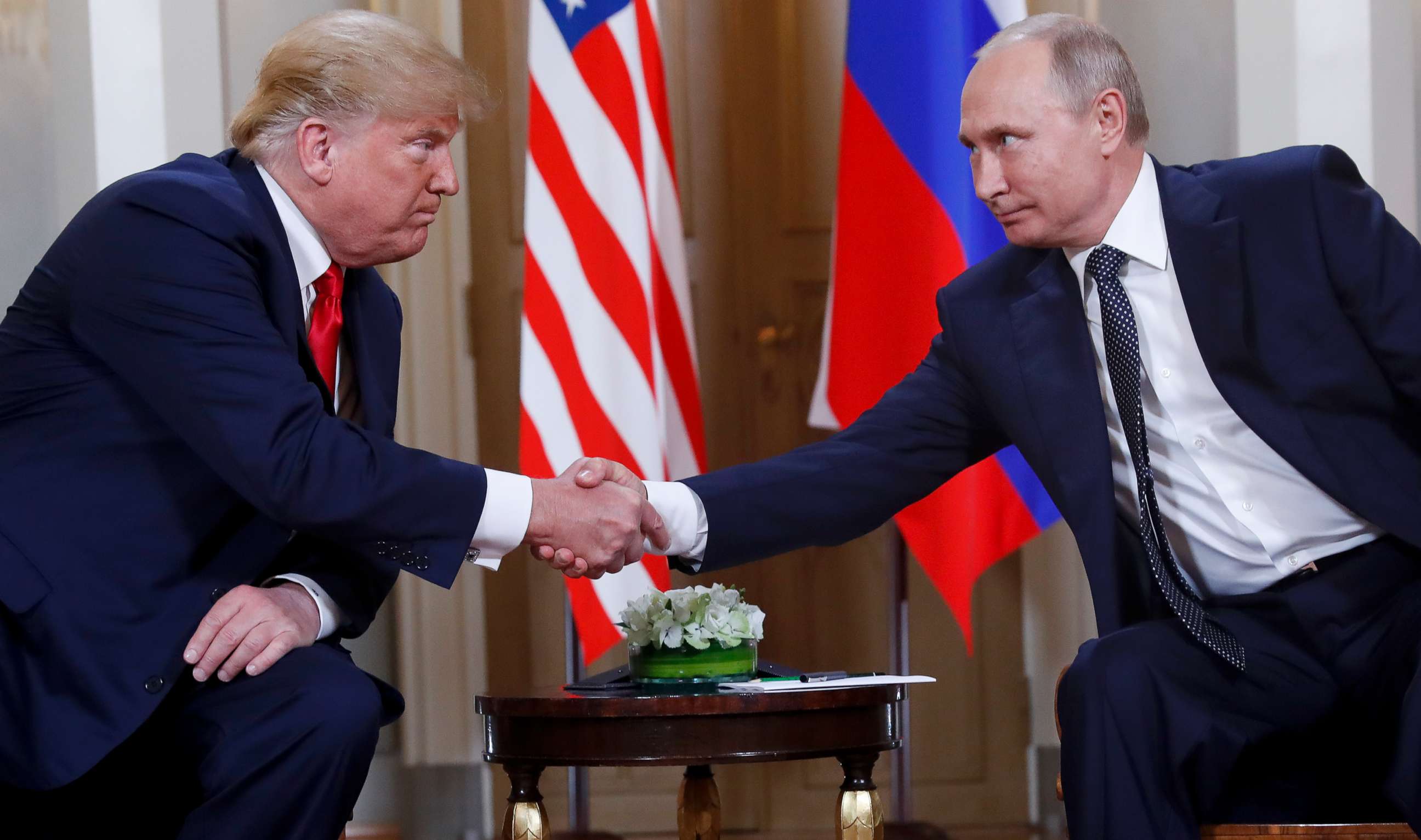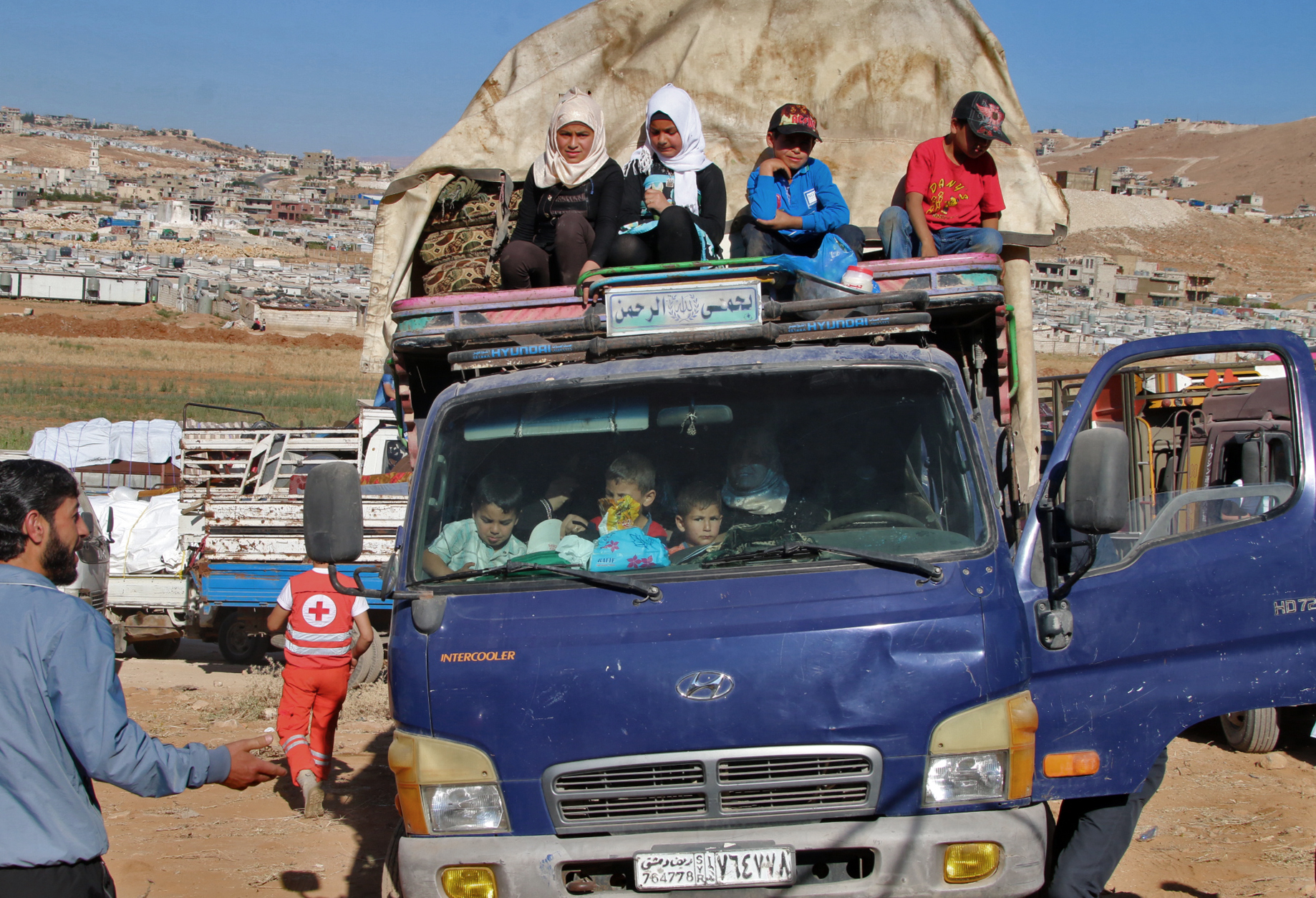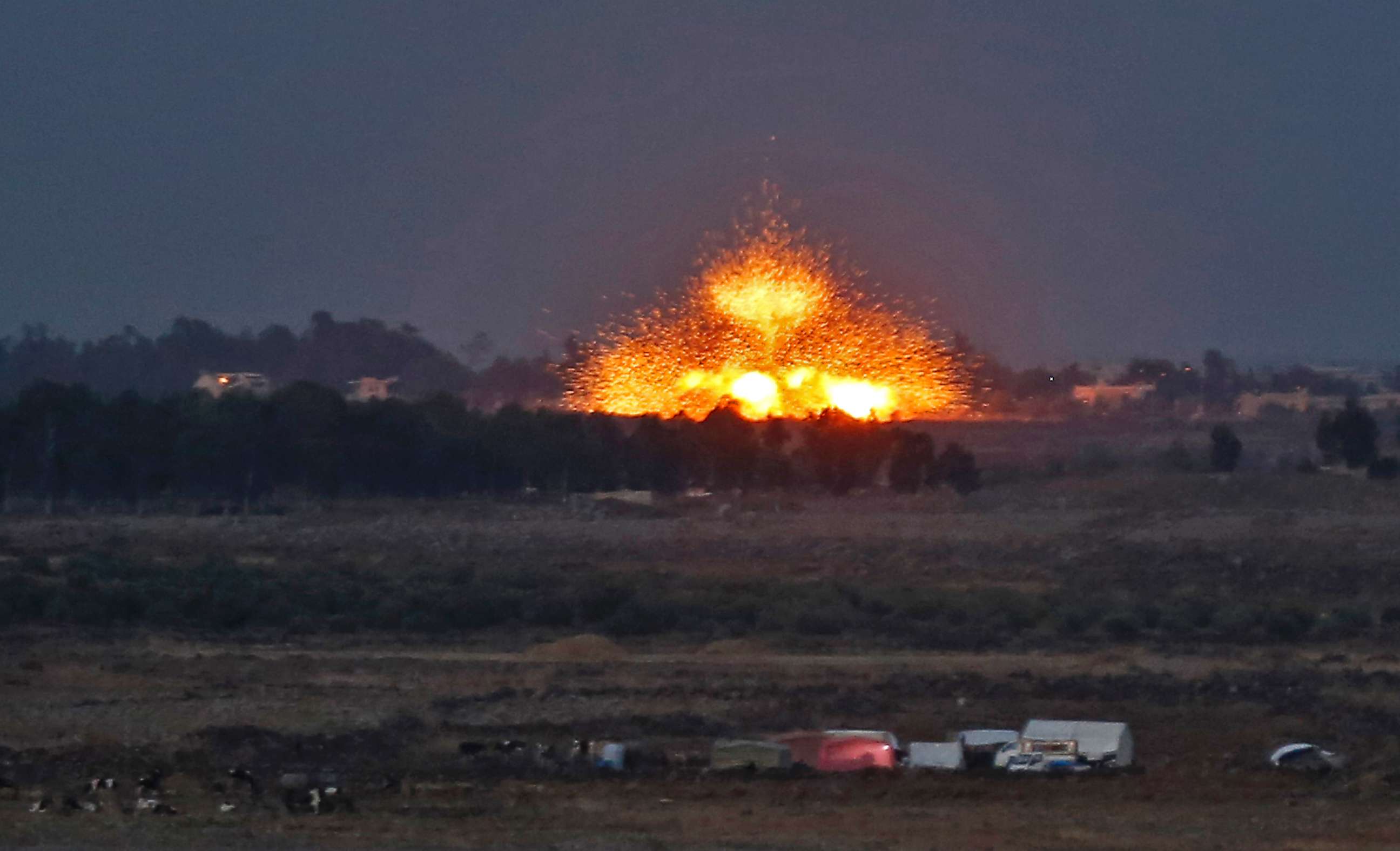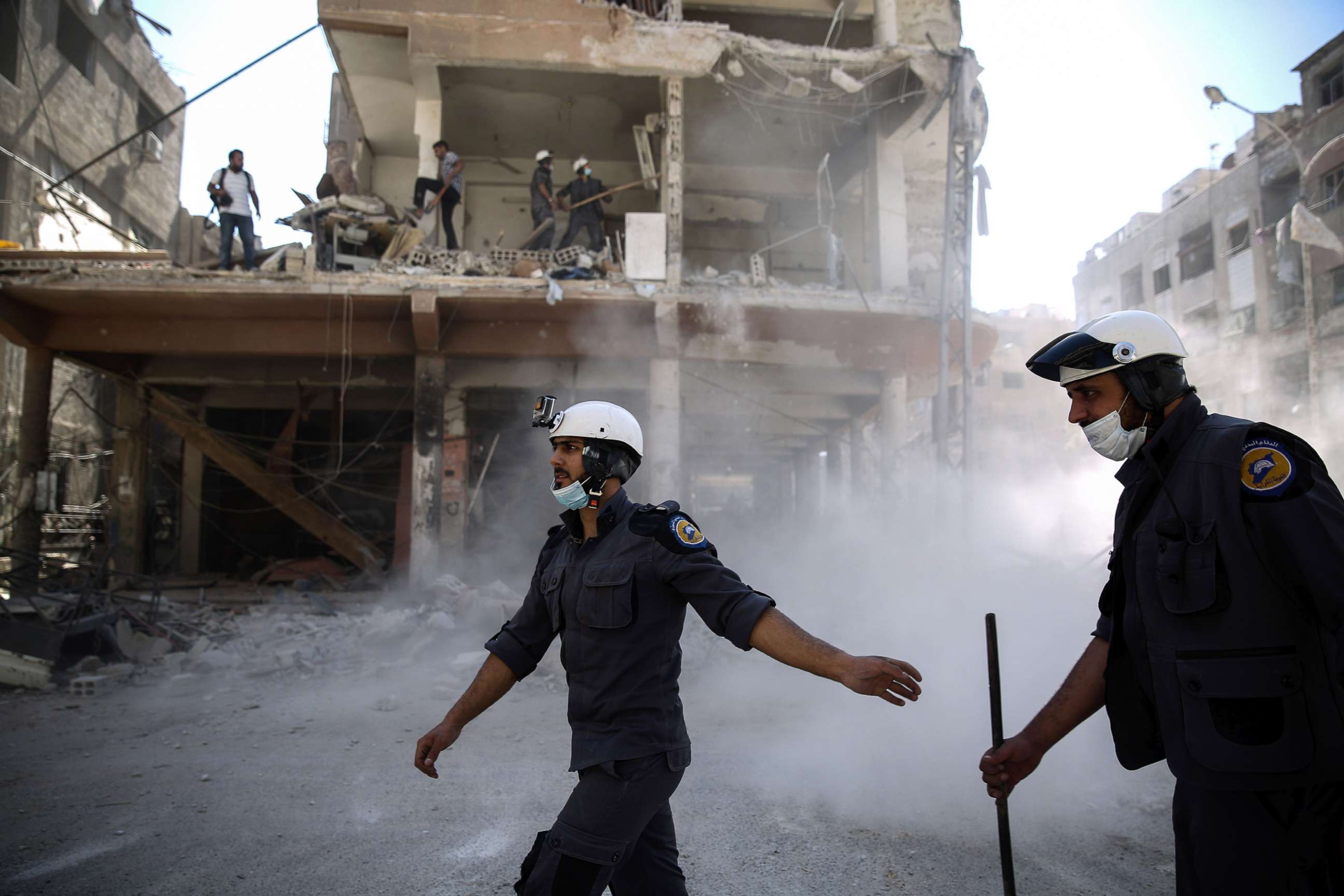Confusion, questions linger over possible US-Russia deal on Syrian refugees
U.S. officials have put the brakes on a US-Russia refugee deal
A week and a half after President Donald Trump's summit with Russian leader Vladimir Putin, there's still confusion about what the two men may have agreed to.
But Trump, Secretary of State Mike Pompeo and the Russians have pointed to a potential deal on Syria to help refugees in neighboring countries return home and to fight terrorists.
In recent days, however, several top U.S. officials have put the brakes on that idea, with experts telling ABC News that it's inadvisable, possibly impossible.
During their joint press conference last Monday, Putin specifically mentioned Russia and the U.S. working together to "help Syrian refugees to go back to their homes." Trump endorsed the idea too, saying, "We will do that."
"If we can do something to help the people of Syria get back into some form of shelter and -- on a humanitarian basis, and that's what the word was, really, a humanitarian basis -- I think that both of us would be very interested in doing that, and we are. We will do that," he said.

Pompeo also backed the idea during a press conference Friday at the United Nations, but didn't say an agreement had been reached: "There's lots of work to do to figure out how to implement that, but the United States certainly wants to be part of help achieving that resolution in Syria."
He repeated during testimony on Capitol Hill Wednesday that they were "working to see in Syria what are the possibilities that can be achieved so that ... externally displaced persons have the opportunity to return."
But the top U.S. general for the region dismissed the idea just days later, telling ABC News he had not received any guidance from the White House about the Helsinki talks and had only seen press reports about the proposed joint plan to return Syrian refugees.
"You don't just go do things," said Gen. Joseph Votel, commander of U.S. Central Command. "I have not asked for that. I am not recommending that. And that would be a pretty big step at this point."
Votel is not alone. Defense Secretary James Mattis said Tuesday that the U.S. does not coordinate operations with Russia in Syria -- not yet, at least.
"We will not be doing anything additional until the secretary of state and the president have further figured out at what point we are going to start work alongside our allies with Russia in the future. That has not happened yet," he said.

But it doesn't seem like those plans are being worked out either. A State Department official told ABC News Wednesday that they haven't been tasked with figuring out how to implement any refugee deal.
"We're not anywhere near any deal like that because no one's asked us for anything or to do anything or prepare anything," said the official, speaking on condition of anonymity.
That could be in part because, despite what the president said, the administration believes the situation in Syria is still too dangerous to begin resettling refugees.
State Department spokesperson Heather Nauert seemed to make that case Tuesday: "We support refugees going home under these conditions: Safe, voluntary, dignified returns at a time of their choosing and when it is safe to do so. I don't think the situation ... allows for that at this time."
Experts such as Ambassador Robert Ford, the last U.S. ambassador to Syria, tell ABC News that given the limited U.S. presence in Syria, it is largely unable to verify whether the conditions are safe to return, even as Russia and Syria claim they are.
There's also the longstanding U.S. opposition to Syrian President Bashar al Assad, who the U.S. says has committed war crimes against the Syrian people and must be removed from power. At one time fighting for his regime's survival, Assad now controls over 50 percent of the country, thanks to Russian military intervention and Iranian forces and their affiliated militias.

While the U.S.'s position on a possible refugee deal is muddied, the Russians are moving ahead rapidly with plans to try to implement it. The Russians even went out of their way to criticize Votel, saying he "discredited" Trump with his comments to ABC News.
The Russian Defense Ministry and Foreign Ministry also launched a joint operations center to coordinate last week, while top Russian diplomats have reached out to Lebanese, Jordanian and French officials since the summit. After meetings between senior Lebanese and Russian officials, Lebanese Prime Minister Saad Hariri's office said Wednesday that the two countries were discussing the plan and that they hoped Russia could tackle the "displacement crisis."
According to the United Nations High Commissioner for Refugees, there are nearly 1 million Syrian refugees in Lebanon, nearly 700,000 in Jordan, and 3.5 million in Turkey, straining those countries' resources, so their governments would be willing to support for any plan to begin returning refugees.
In addition to the refugee deal, several top administration officials have mentioned coordinating on counterterrorism as a key outcome of the summit, as Trump and Putin highlighted during their press conference
Pompeo told Fox News last Thursday, "There was progress made on a handful of fronts -- agreements to try and work more closely on counterterrorism," and he told the Christian Broadcasting Network the same day, "We're going to work on counterterrorism together."
But experts say the two countries don't even agree on who is a terrorist in Syria, making it difficult to coordinate.
"The Russians have been notoriously unreliable in terms of defining who is a terrorist," said Ford, now a fellow at the Middle East Institute. "Most of their airstrikes historically have been aimed at groups that are more moderate and are not on the United Nations terrorism list," including rebel groups that the U.S. had been backing and arming.

The Russians have even labeled the humanitarian group known as the White Helmets as terrorists who have staged attacks -- while the U.S. has helped to fund the group's lifesaving work and even to rescue dozens of members and their families from an Assad campaign into southwestern Syria, backed by Russian air power.
There is one other deal that the Russians are seeking, too -- financial assistance in rebuilding Syria. As the war begins to wind down, the World Bank estimates it will need $200 billion to rebuild its cities and infrastructure, a number that the Russians don't have and having been shopping around to meet.
"The Syrian and Russian governments destroyed these cities. We protested it for years and years. The Russians and the Syrians ignored our plea, and now they want us to pay for the rebuilding," Ford said. "It would be folly for the Americans to start writing checks to rebuild what the Russians and the Syrians destroyed."
But Trump has long stated his desire to withdraw from Syria entirely, even canceling $200 million in funding to rebuild a small section of Syria that the U.S. bombed as part of its campaign to exterminate ISIS. While some have advocated for the U.S. to use these funds as leverage to demand a political solution or remove the brutal dictator from power, Russia and Syria have rebuffed those demands.
"This was a civil war," Ford said, "and it had a military ending, and dollars aren't going to pull out victory from the jaws of military defeat."




